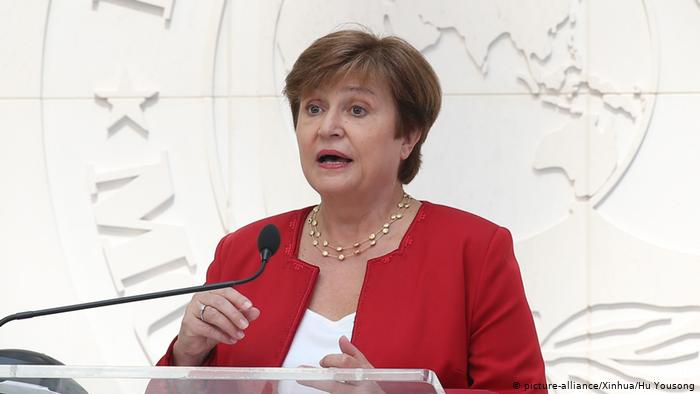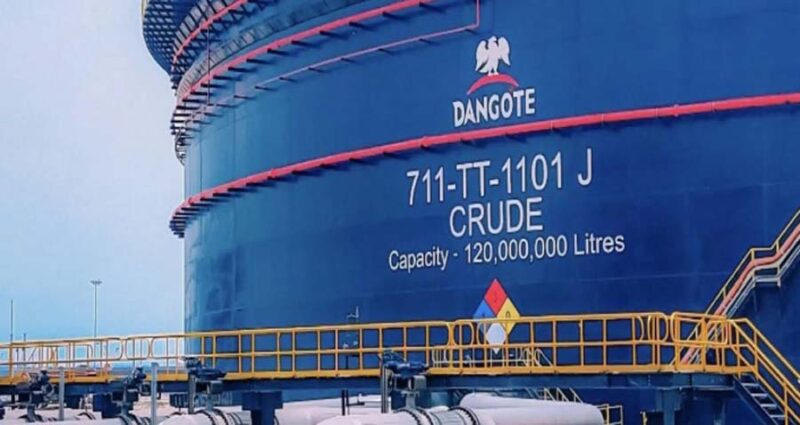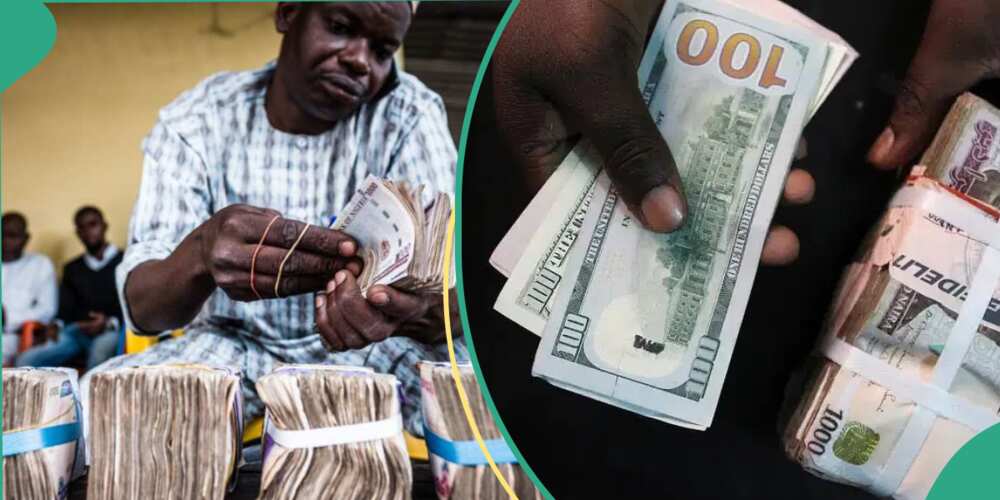Business
IMF ready to lend more to Nigeria

The International Monetary Fund (IMF) has not foreclosed granting credit facilities to Nigeria and other emerging economies within its membership, it was learnt last night.
Speaking during an online media parley in Washington DC, United States (U.S.), the IMF said the facilities would come through its financial safety nets.
According to the IMF, the loans are to protect member countries from losing their financial security or derailing from long-term financial goals.
It reiterated the importance of strengthening global financial safety net, and ensuring that countries have access to support.
In the media parley transcript posted on its website, IMF called for actions to strengthen policy frameworks and reduce vulnerabilities in monetary policy, fiscal policy, and financial support for business.
“We emphasise the importance of the global financial safety net, and countries having access to that as appropriate, including, of course, support from the IMF, which we stand ready to provide as needed by our membership,” it said.
A data from the Debt Management Office (DMO) showed a rise in Nigeria’s total public debt from N32.92 trillion in 2020 to N39.56 trillion at the close of last year.
A breakdown of the debt statistics as at December 31, 2020, showed that Nigeria owes International Development Association (IDA) $11.12 billion; Eurobonds ($10. 8 billion); IMF ($3.53 billion) and Exim Bank of China ($3.26 billion), among others.
The debt stock includes new borrowings by the Federal Government and sub-nationals. The borrowed funds are helping in financing the budget deficit, capital projects and support economic recovery.
Although Nigeria’s current debt to Gross Domestic Product (GDP) 22.47 per cent is relatively low, giving it room to borrow, its inability to generate adequate revenue worsened its debt problem.
The debt to Gross Domestic Product (GDP) ratio stood at 22.47 per cent compared to 21.61 per cent in 2020. At this level, the ratio is within Nigeria’s self-imposed limit of 40 per cent, the World Bank/IMF’s recommended limit of 55 per cent for countries within Nigeria’s peer group, and 70 per cent for ECOWAS countries.
Nigeria’s revenue to GDP ratio has remained low at nine per cent compared to countries, such as Ghana at 12.5 per cent; Kenya at 16.6 per cent; Angola at 20.9 per cent; and South Africa at 25.2 per cent.
The IMF said: “The sharp rise in global oil prices represents important terms of trade shock. With macro-economic implications, it will lead to higher inflation and current account deficit. But the impact on the current account could potentially be partially offset by favourable movements in prices of commodities.”
It added that evaluating the impact of monetary policy tightening by the Federal Government on emerging markets is more difficult now and should be done on a case-by-case basis given the considerable differentiation between countries.
Investigation showed that many debts, especially Eurobonds contracts, have non-disclosure clauses, and should be made more balanced to ensure transparency and credibility of the debt data.
The World Bank and IMF are working together to support implementation of the G20 Common Framework that requires greater transparency reconciling every country’s debt with creditors.
THE NATION
Business
Govt paying N600bn for fuel subsidy monthly — Rainoil CEO

Govt paying N600bn for fuel subsidy monthly — Rainoil CEO
The CEO of Rainoil Limited, Gabriel Ogbechie, has claimed that the federal government resumed the payment of the controversial fuel subsidy following the devaluation of the Naira in the foreign exchange market.
Ogbechie made this statement on Tuesday during the Stanbic IBTC Energy and Infrastructure Breakfast Session held in Lagos.
He pointed out that with Nigeria’s daily fuel usage at 40 million liters and the foreign exchange rate at N1,300, the government’s subsidy per liter of fuel falls between N400 and N500, culminating in a monthly total of approximately N600 billion.
He said; “When Mr. President came in May last year, one of the things he said was that Subsidy is gone. And truly, the subsidy was gone, because immediately the price of fuel moved from 200 to 500 per liter. At that point truly, subsidy was gone.
“During that period, Dollar was exchanging for N460, but a few weeks later, the government devalued the exchange rate. And Dollar moved to about N750. At that point, subsidy was beginning to come back.
READ ALSO:
- North Central Support Group rejects Northern Elders, pledges allegiance to Asiwaju
- Gunmen kidnap 2 FRSC officers along Abakaliki-Enugu highway
- Driver killed, 16 passengers abducted on Abuja-Lokoja road
“The moment the two markets officially closed, officially the market went to about N1,300. At that point, that conversation was out of the window. Subsidy was fully back on petrol. If you want to know where petrol should be, just look at where diesel is. Diesel is about N1,300 and petrol is still selling for N600.
Furthermore, he said that NNPC being the only petrol importer in the country implies that there is an ongoing subsidy, as prices had to be fixed.
Earlier yesterday, the former governor of Kaduna State, Nasir El Rufai, said the federal government is spending more on petrol subsidy than before.
In addition, the Special Adviser to the President on Energy, Mrs. Olu Veŕheijen, said that the Federal Government reserves the right to pay fuel subsidy intermittently to cushion hardship in the country.
“The subsidy was removed on May 29. However, the government has the prerogative to maintain price stability to address social unrest. They reserve the right to intervene.
“If the government feels that it cannot continue to allow prices to fluctuate due to high inflation and exchange rates, the government reserves the right to intervene intermittently and that does not negate the fact that subsidy has been removed,” she said.
Govt paying N600bn for fuel subsidy monthly — Rainoil CEO
Business
Breaking: Dangote brings diesel price down to N1000/litre

Breaking: Dangote brings diesel price down to N1000/litre
Dangote Petroleum Refinery has announced a further reduction in the price of diesel.
When it commenced operation a few weeks ago, Dangote Petroleum Refinery pegged the price of diesel as N1,200.
While rolling out the products, the refinery supplied at a substantially reduced price of N1,200 per litre three weeks ago, representing over 30 percent reduction from the previous market price of about N1,600 per litre.
READ ALSO:
- Kano anti-corruption agency slams fresh charges against Ganduje
- Troops kill ISWAP Commanders, 30 other terrorists
- Ooni of Ife dismisses agitators of Yoruba nation
However, on Tuesday, a further reduction of N200 was noticed in the price, with the product now pegged at N1,000.
This significant reduction in the price of diesel, at Dangote Petroleum Refinery, is expected to positively affect all the spheres of the economy and ultimately reduce the high inflation rate in the country.
The President of Dangote Group, Aliko Dangote, had during the Eid-el-Fitr celebration said if the cost price of diesel comes down, the inflation rate will be substantially reduced.
Dangote spoke when he visited President Bola Tinubu in his residence in Lagos State to celebrate the end of the Ramadan fast with him.
Breaking: Dangote brings diesel price down to N1000/litre
Business
Naira records five-month highest gain, sells below N1000/$ at parallel market

Naira records five-month highest gain, sells below N1000/$ at parallel market
The naira continued its positive showing against the United States dollar on Monday, selling below N1000/$ in some segments of the parallel market.
Newstrends reports that the Federal Government, groups and some individuals have mounted a spirited campaign for those hoarding the dollars to push them out as naira continues to appreciate.
On Monday, the naira was offered in some parts of Lagos and Abuja between N995 and N1,050 per dollar in the parallel market. It was N1,230/$ on Friday.
The latest gain, being over five-month highs, came in the wake of the Iranian attack on Israel and a rise in the crude oil price.
Goldman Sachs, American investment bank economists, had earlier predicted that the naira’s bullish momentum on the foreign exchange market would likely cause it to trade for less than N1,000 per US dollar in the coming months.
According to a report by Nairametrics, the group claimed that the rally in Nigerian currency helped recover from large losses after two devaluations since last June by being bolstered by capital inflows and successive interest rate hikes.
In March, Goldman Sachs projected that the Naira would appreciate to N1,200 per dollar in 2024.
At the official foreign exchange market, the rate was put at N1,136/$ in contrast with N1,205/$ last Friday.
The top bank has implemented several policy initiatives in recent months to bring stability to the foreign exchange market.
The CBN increased interest rates to 24.75% at the most recent meeting of the Monetary Policy Committee (MPC), which helped it recover losses from the two devaluations that occurred since June of last year.
Further gains for the naira result from the CBN’s ongoing intervention, which involves selling foreign exchange to Bureau De Change operators at a revised rate.
The market anticipates higher inflows of US dollars from the sale of foreign currency bonds in the second quarter as disclosed by Finance Minister Wale Edun.
The Federal Government has just offered high-yield short-term debt products at a premium to entice overseas capital into the economy.
The Middle East’s geopolitical unrest and
Notwithstanding a drop in Nigeria’s production volume, crude oil prices have risen beyond $90.
Nigerian grades of oil are trading at a premium to the ICE Brent benchmark.
The Middle East’s geopolitical unrest and the anticipation of an Iranian government strike on Israel caused oil prices to soar.
-

 metro7 days ago
metro7 days agoTroops arrest ISWAP commander involved in Army General, 3 soldiers’ killing in Borno
-

 News6 days ago
News6 days agoBREAKING: Ex-Abia gov, Ogbonnaya Onu, is dead
-

 Sports6 days ago
Sports6 days agoKane’s three children involved in car crash, hospitalised
-

 News4 days ago
News4 days agoFG gives update on where fleeing Binance executive is hiding
-

 Entertainment5 days ago
Entertainment5 days agoTolani Baj expresses love for Bobrisky
-

 metro4 days ago
metro4 days agoTroops neutralise 188 terrorists, rescue 133 hostages in assault operations
-

 metro4 days ago
metro4 days agoViral video: Edo CP orders trial of officer threatening people with gun
-

 News4 days ago
News4 days agoNLC, TUC jointly propose N615,000 new minimum wage






















